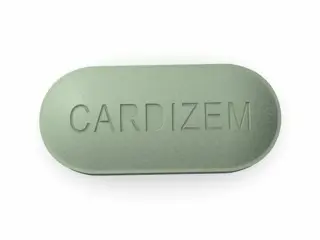| Package | Dosage | Price | Price per Dose | |
|---|---|---|---|---|
| Dosage: 30mg | ||||
| 360 pill | 30mg | CAD382.53 | CAD1.06 | |
| 270 pill | 30mg | CAD301.10 | CAD1.12 | |
| 180 pill | 30mg | CAD213.98 | CAD1.19 | |
| 120 pill | 30mg | CAD159.06 | CAD1.33 | |
| 90 pill | 30mg | CAD128.76 | CAD1.42 | |
| 60 pill | 30mg | CAD92.78 | CAD1.53 | |
| 30 pill | 30mg | CAD49.22 | CAD1.65 | |
| Dosage: 60mg | ||||
| 360 pill | 60mg | CAD524.57 | CAD1.46 | |
| 270 pill | 60mg | CAD399.58 | CAD1.48 | |
| 180 pill | 60mg | CAD268.90 | CAD1.50 | |
| 120 pill | 60mg | CAD183.68 | CAD1.53 | |
| 90 pill | 60mg | CAD145.80 | CAD1.61 | |
| 60 pill | 60mg | CAD100.35 | CAD1.69 | |
| 30 pill | 60mg | CAD54.90 | CAD1.80 | |
| Dosage: 90mg | ||||
| 360 pill | 90mg | CAD776.45 | CAD2.16 | |
| 180 pill | 90mg | CAD405.26 | CAD2.25 | |
| 120 pill | 90mg | CAD274.58 | CAD2.29 | |
| 90 pill | 90mg | CAD215.88 | CAD2.41 | |
| 60 pill | 90mg | CAD151.49 | CAD2.52 | |
| 30 pill | 90mg | CAD81.42 | CAD2.71 | |
| Dosage: 120mg | ||||
| 360 pill | 120mg | CAD859.77 | CAD2.39 | |
| 270 pill | 120mg | CAD659.03 | CAD2.44 | |
| 180 pill | 120mg | CAD450.71 | CAD2.50 | |
| 120 pill | 120mg | CAD314.35 | CAD2.61 | |
| 90 pill | 120mg | CAD248.07 | CAD2.75 | |
| 60 pill | 120mg | CAD176.11 | CAD2.94 | |
| 30 pill | 120mg | CAD109.82 | CAD3.66 | |
| Dosage: 180mg | ||||
| 270 pill | 180mg | CAD941.21 | CAD3.48 | |
| 180 pill | 180mg | CAD643.88 | CAD3.58 | |
| 120 pill | 180mg | CAD433.66 | CAD3.62 | |
| 90 pill | 180mg | CAD342.76 | CAD3.81 | |
| 60 pill | 180mg | CAD242.39 | CAD4.05 | |
| 30 pill | 180mg | CAD132.55 | CAD4.43 | |

Diltiazem Description
Overview of Diltiazem
Diltiazem is a widely used medication in the treatment of various cardiovascular conditions. It belongs to a class of drugs known as calcium channel blockers. Its primary function is to relax the muscles of the heart and blood vessels, thereby improving blood flow and reducing the workload on the heart. This medication is often prescribed for managing hypertension, angina pectoris, and certain arrhythmias. Its effectiveness and safety profile make it a popular choice among healthcare providers and patients alike.
How Diltiazem Works
By inhibiting calcium ions from entering the smooth muscle cells of the heart and blood vessels, diltiazem causes vasodilation. This widening of blood vessels helps lower blood pressure and alleviates the chest pain caused by angina. Additionally, it affects the electrical conduction in the heart, helping to regulate abnormal rhythms. The ability to target both vascular and cardiac tissues makes diltiazem a versatile medication in cardiovascular therapy.
Potential Benefits
Patients who use diltiazem often experience significant benefits. It effectively reduces high blood pressure, which helps prevent strokes, heart attacks, and kidney problems. For those suffering from angina, diltiazem can decrease the frequency and severity of chest pain episodes. Its role in controlling certain arrhythmias also contributes to overall heart health. Many patients report improved quality of life when using this medication as part of a comprehensive treatment plan.
Possible Side Effects
Like all medications, diltiazem can cause side effects. Common issues include dizziness, headache, swelling of the ankles or feet, and flushing. Some individuals might experience gastrointestinal symptoms such as nausea or constipation. Although serious side effects are rare, they can include abnormal heart rhythms or allergic reactions. It is essential for patients to communicate any adverse effects to their healthcare provider, especially if symptoms worsen or become intolerable.
Precautions and Interactions
Patients should inform their healthcare provider about all other medications they are taking. Diltiazem can interact with other drugs, including beta-blockers, statins, and certain antifungals, potentially leading to increased side effects or reduced efficacy. People with certain health conditions, such as heart failure or severe liver impairment, should use this medication cautiously. Regular monitoring of blood pressure and cardiac function is recommended during treatment to ensure safety and effectiveness.
Usage and Dosage
The dosage of diltiazem varies depending on the condition being treated and individual patient factors. It is typically taken orally, with or without food. Adherence to the prescribed dosage and schedule is crucial. Patients should not adjust their dose without consulting their healthcare provider. Consistent use and careful monitoring help achieve optimal therapeutic outcomes while minimizing potential risks.
